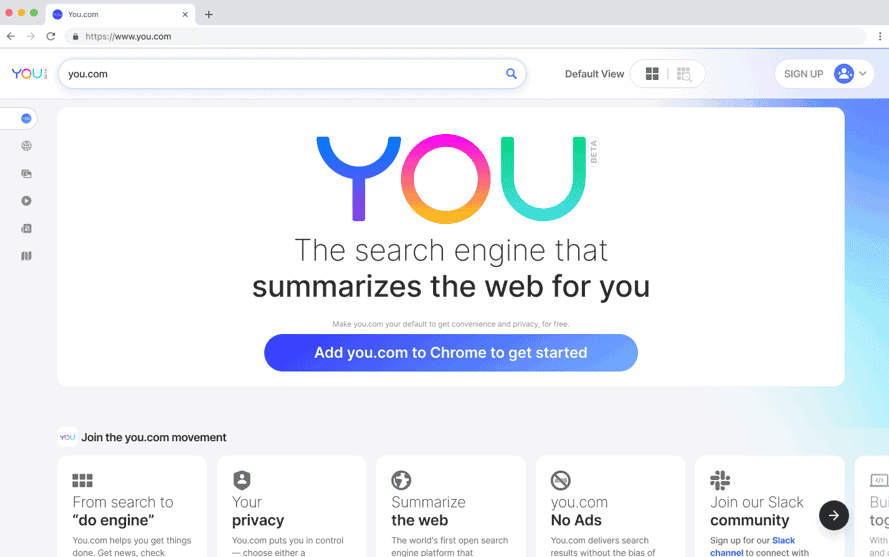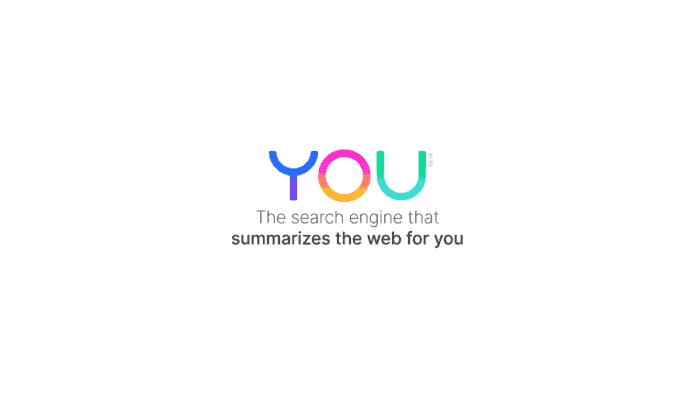Google has been dominating the market of search giants with a monumental 86.64 percent market share. So far, this has been allowing the company to amass a huge amount of revenue every year thanks to advertising. In 2020, this position brought around $146.9 billion for Alphabet’s company. This week, a new search engine dubbed you.com has arrived in public beta format. The goal of this search giant is quite audacious as it aims to take the market share and search revenues from the dominant firm.
You.com CEO Richard Socher made the following statement: “It’s kind of crazy that right now there is this one monopolistic monolith that decides what you read, what you consume, what you buy, and you have no control over it,”
you.com wants to dethrone Google and its practices in the search engine segment
The executive and his Co-founder Bryan McCann helped build the Einstein artificial intelligence platform at Salesforce. Now, they want to free Web search from the advertising and SEO biases of current search technology. The goal is to give users more control over the way they’re interacting with the internet. Their focus is on a new interface design and new user experience. It wants to transform the familiar single vertical list into a horizontal collection of relevant sources.
“We realized the AI needs to be connected to a strong, novel interface that will shine. We think of search results as apps, as a way to help you see different dimensions of the internet and summarize for you each dimension. Each app is one slice, one dimension of the internet,” explains Socher. The new interface allows users to swipe left and right to see similar content. They can swipe up and down to see different types and sources of content.
The company wants to give users the ability to personalize, set different preferred sources, and also a great focus on privacy. With the “Incognito mode”, the platform provides users with the best of both worlds on the same platform. you.com wants to give users the explicit choice of convenience and privacy. They state that the platform is better than Google because they will not share the user data with anyone, and also there won’t be privacy-invading ads.






